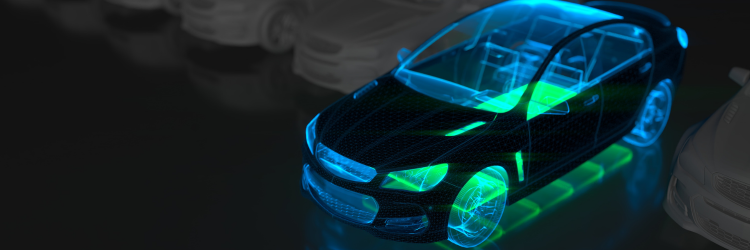GaN FETs Enable 75 – 230 Ampere Laser Diode Control in Nanoseconds for Advanced Automotive
EPC has recently released three new evaluation boards—EPC9179, EPC9181, and EPC9180—featuring pulse current laser drivers with 75 A, 125 A, and 230 A capacities. These boards showcase EPC’s AEC-Q101 GaN FETs (EPC2252, EPC2204A, and EPC2218A), known for their 30% size reduction and improved cost efficiency compared to previous models. Designed for automotive lidar systems, the boards provide varied input and output options to facilitate solution evaluation.
 All boards share identical functionality, differing only in peak current and pulse width. Utilizing a resonant discharge power stage, they employ a ground-referenced GaN FET driven by LMG1020 gate driver. The GaN FET’s ultrafast switching enables rapid discharge of a charged capacitor through the load’s stray inductance, enabling peak discharge currents of tens to hundreds of amps within nanoseconds. The printed circuit board minimizes power loops and common source inductance while offering mounting flexibility for laser diodes or alternative loads. To enhance user-friendliness, all boards ship with EPC9989 interposer PCBs, featuring various footprints to accommodate a variety of laser diodes or other loads. Customers can choose one that meets their needs to evaluate the GaN solutions.
All boards share identical functionality, differing only in peak current and pulse width. Utilizing a resonant discharge power stage, they employ a ground-referenced GaN FET driven by LMG1020 gate driver. The GaN FET’s ultrafast switching enables rapid discharge of a charged capacitor through the load’s stray inductance, enabling peak discharge currents of tens to hundreds of amps within nanoseconds. The printed circuit board minimizes power loops and common source inductance while offering mounting flexibility for laser diodes or alternative loads. To enhance user-friendliness, all boards ship with EPC9989 interposer PCBs, featuring various footprints to accommodate a variety of laser diodes or other loads. Customers can choose one that meets their needs to evaluate the GaN solutions.
The EPC9179/81/80 boards are designed to be triggered from 3.3V logic or differential logic signals such as LVDS. For single-ended inputs, the boards can operate with input voltages down to 2.5 V or 1.8 V with a simple modification. Designing an automotive lidar system is complex, and finding a reliable solution is challenging. The purpose of these evaluation boards is to simplify the evaluation of powerful GaN-based lidar drivers that switch faster and deliver higher pulse currents than other semiconductor solutions. For technical details, EPC offers full schematics, bill of materials (BOM), PCB layout files, and a quick start guide on EPC’s website.

